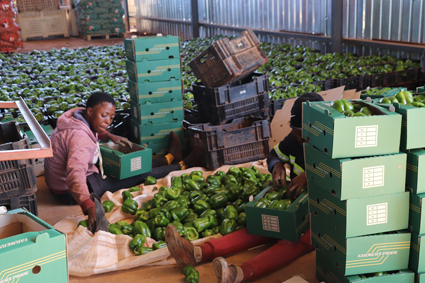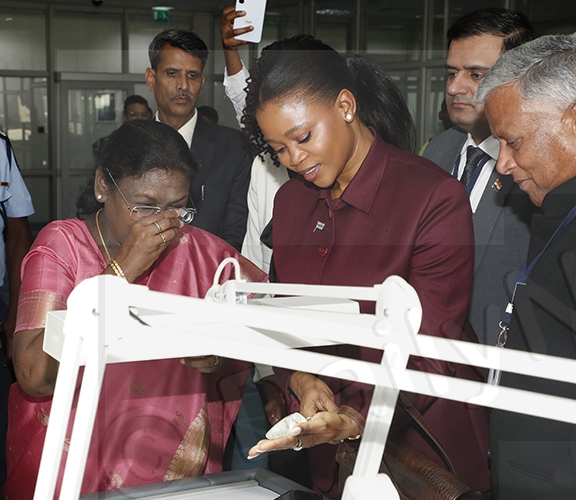Restriction aims to empower farmers
29 Mar 2022
The restriction on the importation of selected vegetable commodities is a test on horticulture farmers to produce more and quality products.
Government has restricted importation of vegetables among others potatoes, tomatoes, onions, green pepper, carrot, cabbage, lettuce, beetroot, butternut and garlic.
Therefore, horticulture farmers have been encouraged to produce quality products.
The call was made by the Assistant Minister of Agricultural Development and Food Security Mr Molebatsi Molebatsi during a visit to some of the farms in the Tuli Block area.
Mr Molebatsi said though government imposed a two-year restriction on importation of horticultural products for the benefit of local producers, the move should not affect other businesses as a result of compromised quality.
He said at some point there were complaints coming from the tourism industry, particularly some hotels decrying the low-quality lettuce supplied by local farmers.
Mr Molebatsi highlighted that by closing borders, government also wanted to reduce the overdependence on other countries for commodities that could produced locally.
He added that government was also trying to come up with various measures to curb the country’s rising import bill.
One of the horticulture farmers, Ms Jorine Rich commended government for closing borders, noting that the decision had put more pressure on local farmers to aim for quality products.
She also noted that restrictions on importation of horticultural products were ideal for the economic growth of the country as more products would be acquired locally.
Ms Rich, however, decried high costs of fertilizers, fuel and electricity among others.
Another farmer, Mr Frikkie Versfeld of Vegi Block farm said it was high time the country enacted structures that made it possible for local farmers to export to neighbouring countries.
He said local producers had a small market because of the country’s climate since all farmers would want to plant vegetables such as potatoes at the same time during winter, as that was the best season for the potato to do well.
Mr Johannes Schoeman of AR5 farm, also embraced the decision to impose a two-year restriction on the importation of some vegetables, saying it was one of the ways to develop the country.
He noted that potato production was expensive, adding that all the tubers and seeds were imported from countries such as France and Holland.
Nonetheless, like fellow farmers, Mr Schoeman decried high costs of electricity and fertilizers among others.
For her part, Ms Barulaganye Lebutswe, an Agricultural Marketing Officer in the Central district, said potato seeds could not be produced in the country because the procedure was expensive, hence all local farmers import them.
Giving an example, she said 10 hectares of potato seeds would cost almost P1billion as that would mean controlled temperatures, while the field would also be quarantined with limited access. She also noted that the potato plant was a heavy feeder, hence more fertilizers were required. ENDS
Source : BOPA
Author : Kabo Keaketswe
Location : PALAPYE
Event : INTERVIEW
Date : 29 Mar 2022






